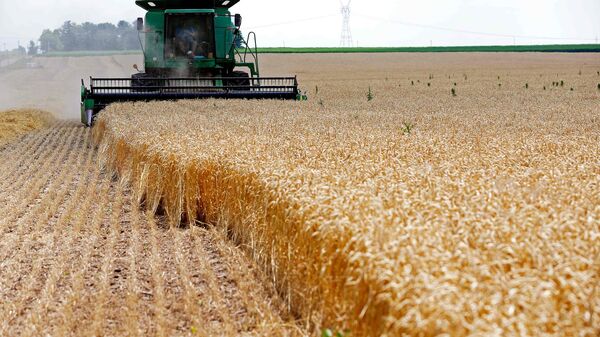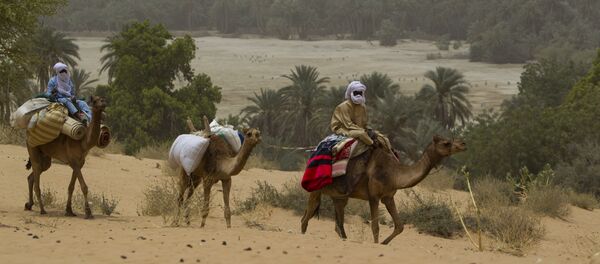Radio Sputnik discussed how climate change is affecting major food crops around the world and whether it could lead to a food shortage with Dr. Senthold Asseng, a professor of agricultural and biological engineering at the University of Florida.
“In this particular study we looked at how temperature will affect major crops such as wheat, rice, corn and soybean and we found out that any change or increase in temperature will have quite a large impact on the yield and production of these major crops,” Asseng said.
He further spoke about how the rise in temperature over the past 50 years has affected production data and which countries are more prone to losing crop.
“Corn in the US would lose some 10 per cent for each degree of global temperature change. In this study we also see some disagreements with other methods of measuring temperature change,” the professor said.
“In the north of China we could see a 2 percent increase per each degree temperature. Same for rice and maize in France, where we could see a 4 percent increase. For some crops, such as maize the rise in temperature gives a larger growing period, which increases its yield in turn,” Asseng said.
He further spoke about the effects of global warming and said that if there is a rise of temperature by 4 degrees globally, “We could see a loss by a quarter, of these major crops. These crops supply two-thirds of the global food [supply] at the moment so we could theoretically lose quite a large portion of major crops,” the professor said.
The scientists said that while an increased atmospheric CO2 concentration can rouse growth when nutrients are not limited, it will also increase the canopy temperature from more closed stomata and that could lead to plants losing their ability to absorb CO2.
Higher temperatures can also increase atmospheric absorption of water in the plants and in the soil, aggravate heat waves and stimulate pests and weeds.
The scientists conducting the research noted that different crops respond differently in various regions and under different conditions, so they called for increased local analysis and strategies.
“These impacts will also vary substantially for crops and regions, and may interact with changes in precipitation and atmospheric CO2, so a reinvigoration of national research and extension programs is urgently needed to offset future impacts of climate change, including temperature increase on agriculture by using crop- and region-specific adaptation strategies,” the research read.





